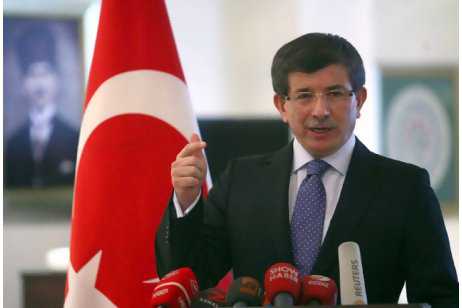By Salwa Samir – The Egyptian Gazette
Monday, June 6, 2011 04:42:46 PM
”]![recep-tayyip [Recep Tayyip Erdogan]](https://www.turkishnews.com/en/content/wp-content/uploads/2011/06/recep-tayyip.jpeg) ISTANBUL – Turkish Prime Minister Recep Tayyip Erdogan has urged young Egyptian revolutionaries to select a president who can do what they want.
ISTANBUL – Turkish Prime Minister Recep Tayyip Erdogan has urged young Egyptian revolutionaries to select a president who can do what they want.
“You should select a president with characteristics like honesty and sincerity, capable of carrying out what you need. If you do so, you will gain a lot of support.”
In a meeting with the delegation of representatives of Egypt’s young revolutionaries who are currently visiting Turkey, Erdogan said that democracy guaranteed rights and basic freedoms, especially for women and children.
“This must be achieved immediately,” he told them, after finishing his last phase of electoral campaigns in Istanbul, ahead of the Turkey’s 17th general election, which will be held on June 12. It will be the first time Turkey hasn’t had early elections in 34 years.
The Turkish leader said that his Government would communicate with the young Egyptians, supporting women’s rights and sectors like the economy, “because we [Egypt and Turkey] have a long history”.
Erdogan, the leader of the ruling Justice and Development Party,
praised the Egyptian and Tunisian revolts and said that Turkey has backed these two countries, with protesters demanding their rights, right from the beginning.
“You did something important in Al Tahrir. I think that there are beautiful days ahead for Tunisia and Egypt. And I believe that you will take the right decisions to make this happen,” he told the revolutionaries via a Turkish-Arabic interpreter.
He urged the people of one religion “to respect the beliefs of people of other religions”.
“We reject the torching of churches and mosques,” he said, quoting a saying of the Prophet Mohamed.
Answering a question from one of the group about how Egypt can apply democracy and fight corruption, he said: “You should begin democracy with the citizens in the streets.”
Erdogan is planning to visit Egypt and other Arab countries after the June 12 elections, where he will meet with officials, in order to discuss ways to ensure the mistakes of the past don’t happen again.
Also on Sunday, the Egyptian delegation were welcomed by the supporters of Erdogan, who then made a speech as part of his electoral campaign.
As the delegation went up on stage, Erdogan’s supporters applauded them heartily and the revolutionaries waved in acknowledgement.
These revolutionaries, who arrived in Turkey on Friday, had been invited by the Turkish Foundation for Political, Economic and Social Research, in co-ordination with the Turkish Foreign Ministry, in order to gain an insight into how Turkey runs its political and economic affairs.
Their visit, which lasts until tomorrow, aims to give the young Egyptians an up-close look at the political and economic systems in Turkey, giving them the chance to observe the electoral campaigning process, as Turkish political parties head into parliamentary elections next Sunday. Egypt is also preparing for parliamentary elections in September.
via Erdogan speaks his mind on Egypt – The Egyptian Gazette.





